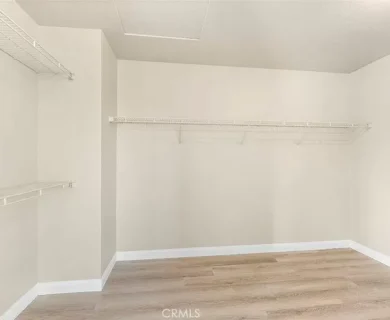
Getting clean and sober is one of the most courageous decisions a person can make. But staying sober—especially when your friends are still drinking and using—is a challenge that many people face during early recovery. If you’re in recovery from drug or alcohol addiction, you may be wondering how to maintain your sobriety when your social circle hasn’t changed. This is a tough but common scenario, and with the right mindset, support, and boundaries, you can absolutely stay on the path of sobriety while others continue down a different road.
At West Coast Detox, we know how crucial a supportive environment is in early recovery. Our detox and treatment center in sunny Southern California is designed to help you not only get clean but also build the skills and strategies you need to thrive once you return to everyday life. Let’s explore how you can navigate friendships and social situations that still revolve around substance use.
Understand That Your Recovery Comes First
First and foremost, your recovery has to be your top priority. Sobriety is not something you do part-time or casually. It requires full commitment, especially in the early days. That might mean limiting your time with certain friends or even stepping away from specific social circles altogether. This doesn’t make you a bad friend—it makes you someone who is fighting for their life and their future. The reality is that not everyone will understand or support your journey, and that’s okay. Your focus has to be on what’s best for your well-being.
Assess Who Your Real Friends Are
One of the sobering truths of recovery is that not all your friends are real friends. Some people are drinking or using buddies who may not have your best interests at heart. Others might support your sobriety verbally but continue to pressure you to join in “just this once.”
Ask yourself:
- Do they support my decision to get sober?
- Are they willing to hang out in ways that don’t involve substances?
- Do I feel safe and respected around them?
You may be surprised by who shows up for you and who fades away. Use this time to take inventory of your relationships. Real friends will want you healthy and happy.
Set Clear Boundaries
You don’t have to ghost everyone or cut off all your friends who still party, but you do need to set boundaries. This could include:
- Declining invitations to bars or parties
- Letting your friends know you won’t be around when substances are involved
- Being honest about your triggers and limitations
Setting boundaries can feel awkward or scary, especially if you’re used to being the “fun one” or the life of the party. But boundaries are an essential part of protecting your recovery.
Find a New Support Network
Sobriety is not a solo journey. Recovery programs like AA, NA, SMART Recovery, or therapy groups are filled with people who understand what you’re going through. These new connections can become your lifeline and your new social network.
At West Coast Detox, we help clients plug into ongoing support after their initial detox and treatment. Many people find their closest, lifelong friends in the recovery community. It’s a space where you can be your true self without fear of judgment or temptation.

Get Your Questions Answered
Reach out today to get the answers you need about drug and alcohol detox. Our compassionate team is here to guide you through every step of the process and help you take the first step toward recovery.

Learn to Say No Without Guilt
One of the hardest parts of staying sober when your friends still party is learning to say no—and mean it. You might feel pressure to attend events or join in so you don’t feel left out. But saying no is a powerful skill.
You don’t owe anyone a lengthy explanation. A simple:
- “No thanks, I don’t drink anymore.”
- “I’m focusing on my health right now.”
- “I have other plans tonight.”
…is enough. Your responsibility is to yourself, not to making others comfortable with your choices.
Anticipate Triggers and Have a Plan
Certain people, places, and events can stir up cravings or emotional triggers. The best way to manage this is to prepare ahead of time:
- Drive your own car so you can leave if needed
- Bring a sober friend to parties or gatherings
- Have an exit plan and someone you can call
- Practice responses to common peer pressure comments
You don’t have to avoid every situation forever, but early recovery is a time to be cautious and self-aware.
Be Honest with Yourself
If hanging out with certain friends keeps putting your sobriety at risk, it might be time to reevaluate those relationships. It doesn’t mean you don’t care about those people. It just means you care more about your recovery.
Be honest:
- Do you feel strong enough to be around partying without joining in?
- Are you minimizing how triggering the situation is?
- Are you romanticizing your past drinking or drug use?
Honesty is the cornerstone of long-term sobriety. Don’t lie to yourself about what you can handle.
Communicate Your Needs
If your friends genuinely care about you, they will respect your boundaries when you explain your needs. You don’t have to go into great detail, but being open about your recovery journey can create space for understanding and support.
You might say:
- “I’m in recovery, and I need to avoid parties for a while.”
- “I still want to hang out, but let’s do something low-key.”
- “Thanks for the invite, but I’m not drinking anymore.”
If your friends don’t respect your needs after you’ve communicated them, that speaks volumes.
Celebrate Your Progress
It’s easy to focus on what you’re missing out on—especially when your friends seem to be having fun. But remember what you’re gaining by staying sober:
- Better physical and mental health
- Deeper relationships
- Increased self-respect
- New opportunities and clarity
Recovery is a gift. Celebrate each day you remain sober. Track your progress, reward your milestones, and reflect on how far you’ve come.

When It Feels Too Hard, Reach Out
There will be days when you feel lonely, left out, or tempted. That’s when it’s crucial to reach out to your support network, sponsor, therapist, or treatment center. West Coast Detox is here to remind you that you don’t have to do this alone.
Whether you’re just beginning detox or you’re transitioning to life after treatment, we’re committed to helping you navigate the ups and downs of real-world sobriety. That includes helping you handle social pressures, rebuild your confidence, and find joy in your new life.
You Deserve a Life That Supports Your Sobriety
You don’t have to choose between your friends and your recovery—but you do need to choose what serves your health and future. Sometimes that means changing the way you relate to old friends or creating distance until you’re stronger in your sobriety. Sometimes, it means building a new community entirely.
At West Coast Detox, we believe in empowering each client with the tools, support, and resources they need to live a fulfilling life without drugs or alcohol. Your environment, including your relationships, can either nourish your recovery or sabotage it.
You get to decide what kind of life you want to live—and who gets to be a part of it.
Final Thoughts
Staying clean and sober when your friends still party isn’t easy. It requires self-awareness, strength, and a commitment to your recovery above all else. But it is possible—and incredibly rewarding.
Recovery gives you the opportunity to reshape your life, your friendships, and your future. While some relationships may fall away, others will deepen and flourish. Most importantly, you will build a relationship with yourself that’s rooted in honesty, self-respect, and healing.
If you’re struggling to stay sober while those around you continue to party, know this: you are not alone. West Coast Detox is here to walk with you every step of the way. Reach out today to learn how we can support your journey to lasting recovery.























